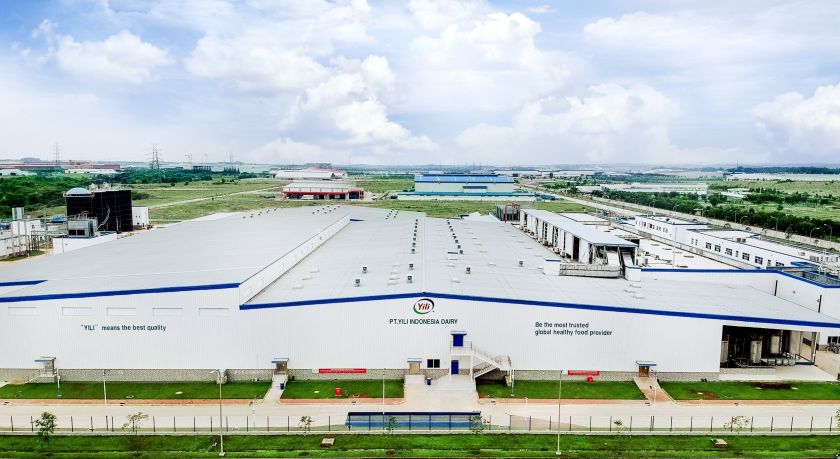Asia’s leading dairy producer, Yili Group, today held an opening ceremony to celebrate the official launch of the first phase of the Yili Indonesia Dairy Production Base. Upon completion of its second phase, the production base will become the country’s largest ice cream factory with a daily production capacity of four million ice cream products.
The state-of-the-art facility was established due to the surging popularity of Joyday ice cream, a brand that has rapidly expanded its reach to 260 local cities in 26 provinces, covering nearly all of Indonesia, since its entry into the market in 2018.
An innovative, green, and open factory
As Yili’s first self-built plant in Southeast Asia, Yili Indonesia Dairy has adopted cutting-edge technology and equipment, including the IoT and big data analytics, to build an innovative and smart factory. The production base integrates advanced digital technologies throughout its entire production chain. Robotics solutions are introduced to provide automated packing, palletizing, and warehousing. The energy system and water treatment system can be easily monitored and controlled in real-time; pre-processing equipment, filling equipment, refrigeration system, and production lines are fully automated; the pasteurization system features fully automated temperature identification and control; robotics solutions are used to provide automated packing, palletizing, and warehousing; and the cooling system can operate autonomously without requiring any manpower.
As part of its efforts to build a sustainable and environmentally friendly production facility, Yili Indonesia Dairy has built a wastewater treatment system with a daily treatment capacity of 2,800 tons. Reclaimed water is then used for the irrigation of plants in the factory.
To ensure high levels of visibility and transparency, the site will be open to the public whenever the factory is in full operation, and consumers can watch the whole production process as it unfolds.
Yili Indonesia Dairy has a total of 383 employees, with local employees accounting for 95% of the workforce. The project is expected to create more than 5,000 new jobs for local communities, directly and indirectly.



